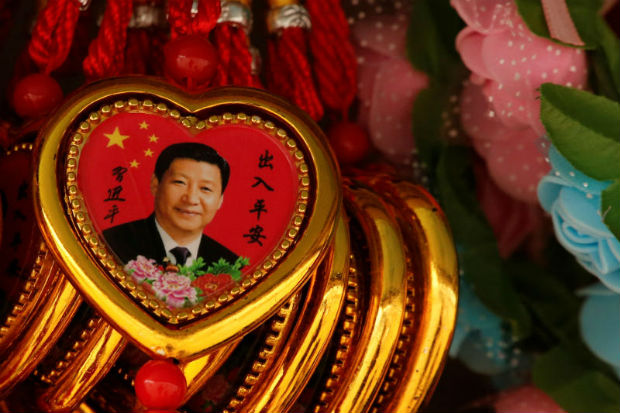
BEIJING: President of China, head of its Communist Party, commander-in-chief of the military and now living Buddhist deity - Xi Jinping has added another title to his growing collection, at least in the eyes of some ethnic Tibetans.
Speaking on Wednesday on the sidelines of China's annual meeting of parliament, the party boss of the remote northwestern province of Qinghai, birthplace of the Dalai Lama, said Tibetans who lived there had been saying they view Xi as a deity.
Wang Guosheng said the province had been following Mao Zedong's advice about inspiring the masses to love the party and its leader, distributing "images of the leader" to people in poverty-stricken areas being moved into new homes.
He did not specify if these were images of Mao or Xi.
"The ordinary people in the herder areas say, only General Secretary Xi is a living Bodhisattva. This is a really vivid thing to say," Wang said.
Bodhisattvas are individuals who carry out compassionate acts to achieve enlightenment. Tibetan Buddhists consider their exiled spiritual leader, the Dalai Lama, to be an incarnation of Avalokitesvara, a Bodhisattva of compassion.
Xi, who will be positioned to remain in office indefinitely when China's largely rubber-stamp parliament approves the removal of presidential term limits on Sunday, is considered China's most powerful leader since Mao.
Qinghai has a large Tibetan population, many of them yak herders, whom China has controversially been moving into permanent homes rather than allowing them to continue their traditional nomadic way of life.
Wang's comments were reported late on Wednesday by the state-run Beijing News on its WeChat account.
Despite being the ancestral home of the Dalai Lama, Qinghai is generally less tense than what China refers to as the Tibet Autonomous Region, and normally has no travel restrictions for foreigners.
Tibetan rights groups and exiles regularly criticise the government for not respecting the religious rights and traditions of Tibetans, and say China has trampled upon their culture.
China denies the accusations, saying its rule has brought development to once poverty-struck areas.
(Video YouTube/Himfact)
Meanwhile, a Tibetan man in western China's Sichuan Province died Wednesday in a self-immolation protest against Chinese suppression, marking the first such protest this year and the 152nd since 2009, according to the Tibetan government-in-exile and news reports.
Tsekho Tugchak, in his 40s, died after setting himself alight in Meuruma Township of Ngaba County in protest against China's repressive policies in Tibet, the Central Tibetan Administration said. Ngaba is also known by its Chinese name, Aba.
"At least 152 Tibetans including Tsekho have set themselves on fire since 2009 in Tibet," the government-in-exile's President Lobsang Sangay said in a statement. "Such sacrifices by Tibetans in Tibet (are the evidence) that repression in Tibet under the Chinese rule is making lives unlivable."
Lobsang urged Beijing to resume dialogue to solve the issue of Tibet through the "middle-way approach," a proposal raised by Tibetan's spiritual leader the Dalai Lama, whom Beijing brands as a separatist.
US-based Radio Free Asia reported that Tsekho called out "Freedom for Tibet" and "Long-live Dalai Lama" before torching himself. He leaves behind two daughters and a wife.
Of those who set themselves on fire in the wave of protests since February 2009, at least 130 have died, according to the government-in-exile.
Tsekho's fiery protest came three days ahead of the 59th anniversary of Tibetan Uprising Day and about nine days before the 10th anniversary of a 2008 protest that swept across the Tibetan region in China.
Tibetans have called for the return from exile of their revered spiritual leader, who fled China after a failed uprising in 1959 and is vilified by China for seeking autonomy for the Tibetan people to protect their culture, religion and language.
China has blamed his followers, whom it denigrates as the "Dalai Lama clique," for orchestrating the string of self-immolation protests and has dismissed claims that Tibetans are being repressed.